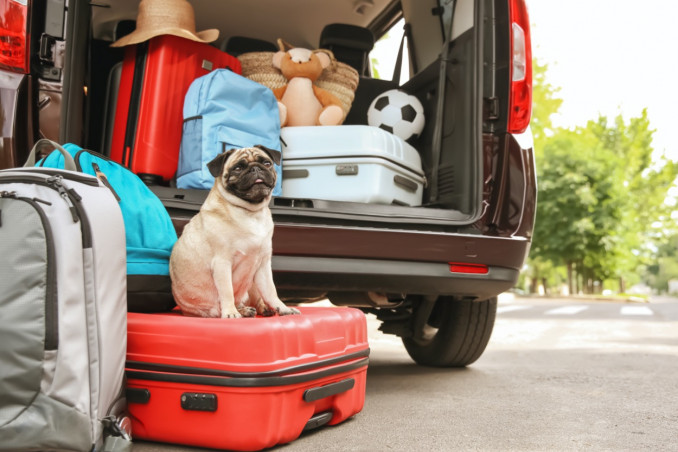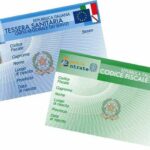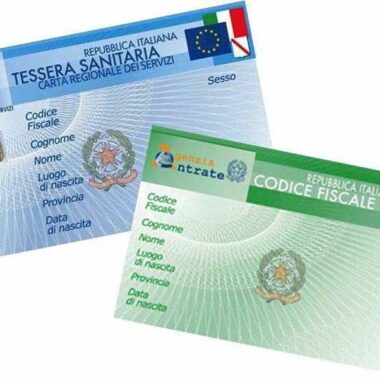If you’re moving to Italy with your dog or cat, you’ll need to follow certain legal and health regulations to ensure your pet doesn’t face issues at customs or risk being quarantined. As a resident of Italy and a veterinary medicine student, I’ve compiled all the steps you need to follow to enter Italy smoothly. This applies whether you’re coming from an EU country or outside the European Union.
You may also be interested in: Moving to Italy with your pet: everything you need to know about transport
Check the regulations based on your country of origin
One of the trickiest parts of moving with your pet is understanding which health certifications are mandatory based on your country of origin. Some diseases are a major concern in Italy, such as rabies, which has been eradicated here since 2013 but remains present in countries like the United States. The applicable regulation you need to follow to bring your pet into Italy is EU Regulation 576/2013, which applies only to dogs, cats, and ferrets. Below are the key points:
- You can bring up to five pets. If you have six or more animals, it’s considered commercial traffic, and you must follow stricter regulations.
- Your pet must be identified with a microchip that complies with ISO 11784/11785 standards, or if applicable, a readable tattoo made before July 3, 2011.
- Rabies vaccination is mandatory. Pets must be vaccinated against rabies with a valid vaccine. The vaccine must be administered at least 21 days before traveling, and the pet must be at least 12 weeks old to be vaccinated. If your pet is coming from a non-EU country considered a rabies risk area, a serological test is required to confirm the vaccine’s effectiveness. This test must be performed at least 30 days after vaccination and 90 days before entering the EU.
- European pet passport. For travel within the EU, a European pet passport, issued by an authorized veterinarian, is mandatory. For entry from non-EU countries, an official veterinary certificate translated into Italian is required.
- Pets arriving from non-EU countries must enter through designated Border Inspection Posts (PCF) for veterinary inspection.
Are there mandatory parasite treatments?
The European Union has implemented preventive measures to stop the spread of Echinococcus multilocularis, a parasitic disease that poses a risk in certain areas. While parasite treatments are not mandatory for most pets coming to Italy, they may be required if the animal comes from high-risk zones.
- You may also be interested in: Adopting a Family Dog in Italy: Here’s What You Need To Know
Customs control: what to expect
Traveling by Air
If you’re traveling by plane with your pet, you’ll need to pass through a Pet Entry Point (PPA), where customs authorities may check your pet’s documents and health status. Here’s what happens at the PPA:
- Customs declaration: Upon arrival, you must declare your pet and present the required documents.
- Document check: Customs officers will verify your pet’s passport or health certificate (if coming from a non-EU country).
- Health check (if required): Your pet may be examined by an official veterinarian to ensure they’re in good health.
If everything is in order, you can proceed with your journey. If there are issues (missing documents, invalid vaccinations, suspicious symptoms), measures like quarantine or denial of entry may be taken.
For exotic pets, CITES permits are required.
Traveling by Car, Train, or Sea
If you’re entering Italy from an EU country by car, train, or ferry, you might not face any health checks as long as your pet meets the minimum requirements listed above:
- Registered microchip (or readable tattoo if applied before July 3, 2011)
- Valid European pet passport
- Valid rabies vaccination
If you’re traveling by car or train, there are no mandatory customs checks at the land borders between EU countries. However, if you’re traveling from an EU country with special restrictions (e.g., Finland, Norway, Malta, Ireland), you may be asked for additional documentation. When traveling by sea, some shipping companies require advanced notice for pet transport. If you disembark in a port with a Border Inspection Post (PCF), an official will check your pet’s documents.
Shipping Your Pet as Cargo (Without You)
In this case, the pet cannot enter through a PPA and must undergo inspection at a Border Control Post (PCF). The main PCFs in Italy are located at:
- Rome Fiumicino (FCO)
- Milan Malpensa (MXP)
- Genoa (GOA)
- Bologna (BLQ)
Your pet must be shipped with all required documents, including:
- Health certificate signed by an official veterinarian from the country of origin
- Proof of rabies vaccination
- Registered microchip
Registration in the Italian pet registry
This final step is mandatory only for dogs and is essential for tracking dog ownership within Italy in case of health issues or if your pet gets lost. The Regional Dog Registry is an official record managed by the Italian health authorities (ASL) where all dogs in the country must be registered. You must register your dog within 30 days of arrival in Italy, or you risk a fine that varies by region, ranging from €25 to €1500.

How to Register Your Dog
To register your dog, you must visit an authorized veterinarian, who will handle the registration with the Regional Registry for the area you are living in. You can find a list of authorized veterinarians on your regional ASL veterinary website or ask your local veterinarian. The required documents are:
- European pet passport (if coming from an EU country)
- Health certificate (if coming from a non-EU country)
- Proof of valid rabies vaccination
- Your ID and tax code (Codice Fiscale)
If your dog already has an ISO 11784/11785 compliant microchip, it will be registered as is; if the microchip is not valid according to national standards, a new one will be implanted, and the dog will be registered with it.
If you have any doubts, feel free to contact us. Otherwise, here are some useful official links for further exploration:





























